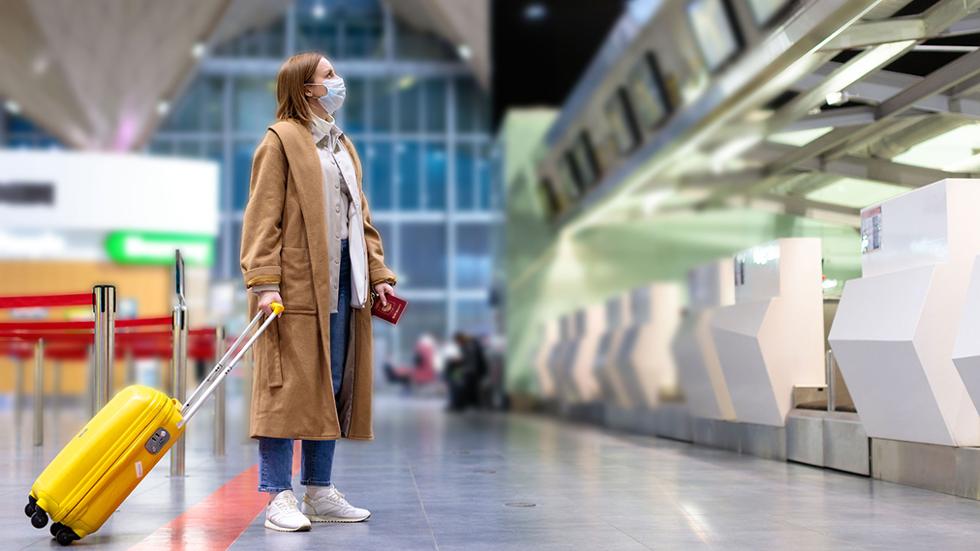French President Emmanuel Macron on June 14 ended confinement and invited citizens to rediscover their country and return to their daily activities.
This, of course, does not mean that the COVID-19 pandemic is over. France, where I live in exile from my native Cambodia, continues to record hundreds of new COVID-19 cases each day. In a sense, little has changed except that French and European health systems are becoming more confident that they have enough capacity to deal with the current gradual rate of infections.
The global persistence of COVID-19 makes it hard to envisage a scenario in which there is no second wave of rapid infections – a prospect which continues to alarm financial markets. It is therefore a realistic prospect that France and other countries which succeed in ending confinement will have to reimpose at least some restrictions in the future.
In that light, immunity passports, which I have previously advocated in The Brussels Times here, retain their importance as a way of limiting the damage to the global economy.
Even a vaccination, if it eventually arrives, is unlikely to put an end to matters. Dr. Anthony Fauci, director of the US National Institute of Allergy and Infectious Diseases, says that a vaccination may not give long-term immunity. There is and will be no silver bullet: we will have to reorganise the mobility which the international economy relies on, and live with the virus for the foreseeable future.
Humanity, whether it likes it or not, is divided into two groups. The first group has not yet been touched by the coronavirus. The second has encountered the virus and overcome it, often without even realising it.
In each country and globally, it is fundamental to identify and track the invisible frontiers between the two groups. Only serological tests, the results of which can be electronically recorded in immunity passports, can do this.
Reliability and duration
To eliminate dangers associated with possible "false positive" results produced by any faulty serological test, I have proposed a two-step protocol for the issuing of immunity passports.
The first step involves a virological test to establish whether the applicant currently has COVID-19. A positive result means that no immunity passport would be granted to the infected person and the "false positive" issue would become irrelevant.
If the candidate tests negative for COVID-19, they then proceed to the next stage, which is a serological test to establish the presence of antibodies.
The presence of these antibodies, especially the most stable and effective ones called IgG, would allow the passport to be granted. The serological test would have to be later repeated to allow the passport to be extended.
In any case, my double-test proposal which is detailed here ensures that no immunity passport can be mistakenly delivered to any COVID-19 infected and contagious person on the basis of a single serological test.
Another objection to immunity passports concerned the reliability of the tests when it comes to identifying the right antibodies that effectively protect against COVID-19. The risk of issuing immunity passports to people who do not in fact have the right antibodies - but only antibodies related to similar diseases - had to be avoided.
Scientific progress pertaining to the "specificity" required from any test has rapidly undermined this objection. In France, the Institut Pasteur has developed four serological tests which totally avoid the problem of false-positive results. In Belgium, the ZenTech biotechnology company has devised a test that it says is 100% accurate and provides results within 15 minutes.
The second, more difficult type of objection concerns the length of the immunity given by the antibodies, whether these are created by natural infection or by vaccination. The possibly short-term duration of the immunity will complicate the process of issuing immunity passports.
We do not yet know how long immunity to COVID-19 will last. Regular, repeated testing for antibodies is the only way to find out. Immunity, even if it only lasts for three months, is a precious resource that a paralysed world can’t afford to waste.
People with immunity who have the right skills and experience could be deployed to help in front line roles such as nursing, transport and food supply, if their immunological status is verified and digitally recorded. There is no justification for leaving those roles unfilled when there are people who are immune who are willing to step in. The real, daily cost of leaving those roles unfulfilled must be measured against the hypothetical risk that some foolish people could try to become infected deliberately to get a passport.
Legislation, education and responsibility will help solve this and other possible social problems associated with the immunity passport. The global transport and tourism industries, crucial for the economies of many poor countries, are on their knees. These industries can’t survive indefinite closure.
The need for repeated testing will be inconvenient and expensive. However, the costs of not doing so will be much greater.
Since the September 11 terrorist attacks in the US in 2001, we have come to accept levels of airport security that many would have regarded as annoying and intrusive before that. Al Qaeda style terrorism in 2001 seemed impossible to pin down and combat. But through new security measures which turned into daily routines, the risk was slowly brought under control and global transport rebounded.
We will need to accept that the nature of international travel has once again changed. Former British Prime Minister Tony Blair is among those to have joined the growing consensus that the digital recording of COVID-19 status will be essential if global travel is to return to anything like normal.
Individual countries may succeed in getting infection rates down to manageable levels and allowing daily life to resume. But without immunity passports, the international travel which is fundamental to the global economy will remain a dangerous shot in the dark.
Sam Rainsy, former Cambodian finance minister, is co-founder and interim leader of the Cambodia National Rescue Party (CNRP).


